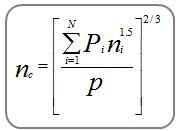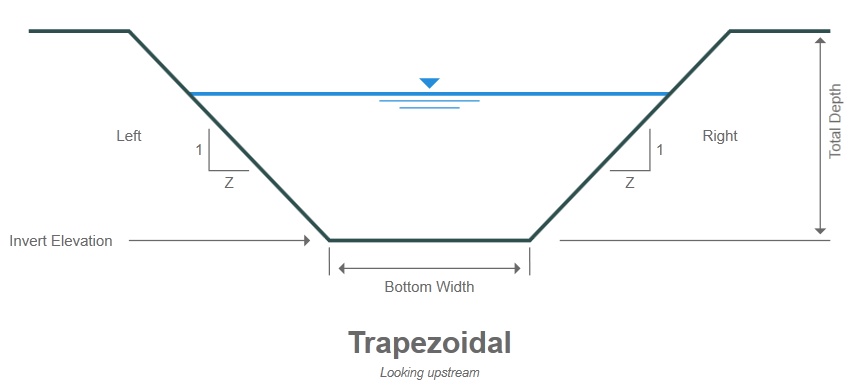Culvert Studio computes various parameters for a wide variety of channel shapes. In all cases, steady flow is assumed and thus normal depth is assumed. Manning’s equation is used exclusively. When a known Q is specified it solves for the depth using an iterative procedure.
Manning’s Equation

Where:
Q = flow rate in cfs
n = roughness coefficient
A = cross-sectional area in sqft
R = hydraulic radius = A / WP
S = channel slope in ft/ft
Composite Manning’s n
With user-defined sections that have varying n values, Culvert Studio uses the following Horton-Einstein equation to first compute a composite roughness coefficient. Then it employs Manning’s equation as described above.

Where:
nc = composite n-value
Pi = wetted perimeter of subdivision i
ni = n-value for subdivision i
p = total wetted perimeter of channel
Critical Depth
Yc, or critical depth is computed using the following equation along with an iterative procedure:

Where:
Q = flow rate
A = cross-sectional area
T = top width

